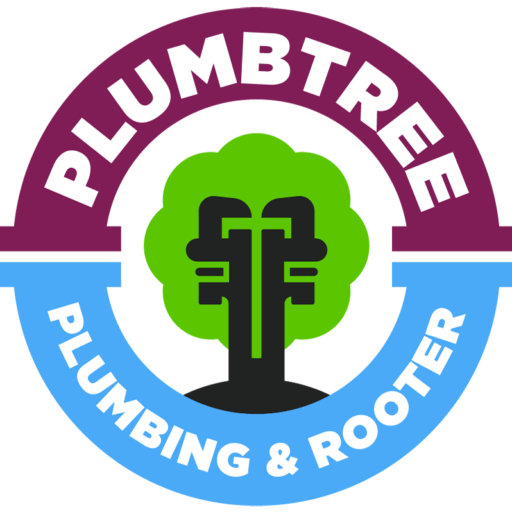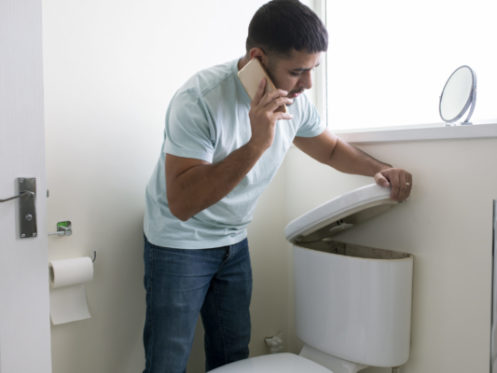Toilets are a modern-day convenience many families can’t live without. While they may be great at flushing down human waste and toilet paper, they’re not built to handle other disposable household items. Trying to get rid of certain products via your toilet can clog your lines, impact your local environment and harm your septic system. It can cost you hundreds of dollars to hire a professional to remove large obstructions and fix the damage. Here are a few household items you should not flush down your toilet.
Flushable Wipes
Flushable wipes were originally marketed to be completely safe for septic systems. In reality, these wipes won’t dissolve like regular toilet paper. They’re actually made of synthetic plastic or polyester fibers that don’t break or tear easily. You likely won’t see any immediate issues if you flush a few of these wipes down the toilet. However, the more you flush, the more the wipes will accumulate in the bends of your plumbing. They can even build up in dangerous amounts in your septic system, making it necessary to call for sewer cleaning or repairs.
Feminine Hygiene Products
Feminine hygiene products are intended to be thrown away rather they’re flushed. They’re made of heavy cotton materials, plastics and strings that won’t break down over time. In addition to clogging your plumbing, they’ll also introduce toxins into the septic system. Products like tampons are often made with fragrances and colorants. Your sewer system needs a healthy bacteria colony to consistently degrade the physical waste. Adding new toxins or chemicals to this colony can impact its usefulness and cause irreparable harm.
Hair
Stringy filaments like hair or dental floss are dangerous because they tend to get caught on other objects in your pipes. If you’ve previously washed away grease or oil, they’ll stick to the residue adhered to the sides of your pipes, making it hard for water to flow. It’s best to have drain coverings in your sinks and tubs to catch large clumps of hair from going down the drain. Never try to flush any hair extensions or significant hair portions collected from your brushes.
Medications
Medications and other potentially dangerous chemicals like paints or cleaning products should never be flushed. Disposing of these objects in the toilet increases the risk of water pollution. Many local sewage treatment plants don’t screen for certain chemicals or contaminants. Instead, they send the water back into the environment, where it can potentially harm local wildlife and surrounding neighborhoods. Expired medications are more likely to experience changes in their chemical makeup that increase the risk of harmful bacteria growth.
Cat Litter
Keeping the litter box clean is one of the worst tasks associated with owning cats. You may want to cut down the process by scooping the feces and used litter directly into the toilet. Unfortunately, by the time you flush the feces, it’s likely already hardened and at high risk of clogging the pipes. Clay-based litter will also settle in the low spots of your plumbing, shrinking the pipe’s effective circumference.
Additionally, cats are known to carry a parasite called Toxoplasma gondii, which can cause toxoplasmosis in humans. Many cats can live with this parasite for their whole lives without showing symptoms. You may inadvertently become a host for this parasite if you mishandle their infected feces. Flushing used cat litter can infect local water sources and harm wild animals.
Oil or Grease
Food grease, oils and fats typically start in a liquid form but can become hard once they cool down. They’ll solidify on the walls of your pipes and obstruct water from passing. These sticky, slippery materials will also catch other items, increasing the size of the blockage. This is often how fatbergs, or huge, rock-like masses of solid waste, form in your septic system. These clogs can become so large that they block all of the wastewater flowing from your home. You’ll then be stuck dealing with unpleasant odors and sewage backup.
Cigarette Butts
Cigarettes are another common household item that can contaminate your septic system and local environment. If you continue to flush them over days and months, they’ll block up your pipes just like cotton balls or swabs. Just because they’re small doesn’t mean they’ll always make it out of your septic system. Cigarette butts also have a habit of refusing to be flushed, which can be unpleasant for the next person to use the bathroom. It’s better to toss this item in the trash after making sure it’s fully extinguished.
Excessive Toilet Paper
Toilet paper is the only material you can safely flush down your toilet apart from human waste. This type of paper is designed to break down quickly before it can clog the pipes. Using too much slows down the natural disintegration process, which can make it harder for waste to travel efficiently out of the pipe. On average, you should only use between four to eight sheets of paper per flush. If you buy particularly thick toilet paper, it’s safer to use less when possible. A great way to cut back on toilet paper use altogether is to utilize a bidet. These systems sit right on your toilet seat and connect conveniently to the water supply line.
How to Minimize Toilet Clogs
Stop your family members and guests from flushing inappropriate items down the toilet by putting trash cans in all of your bathrooms. A small receptacle nearby encourages everyone to throw away their used tissues, cotton swabs and more rather than flush them. If you’re concerned about unpleasant smells or sights, you can buy a trash can with a lid. They’re often operated by a small pedal toward the bottom that minimizes the spread of germs.
Don’t forget to talk to your family about healthy septic habits. Teach your kids what can and shouldn’t go in the toilet. It’s also helpful to show them how to operate fixtures and sinks when they’re first able to reach them. Establishing good septic habits early on lowers the risk of future plumbing emergencies.
Finally, don’t be afraid to call for professional help. Clogged toilets can overflow and allow wastewater into your living spaces. Trying to fix it yourself may just move the clog further into your plumbing. Many plumbing issues start small and can be impossible to identify without professional experience. Save your future money and time by scheduling expert care for your home’s plumbing system today.
Your Professional Plumbing Team
Plumbtree Plumbing & Rooter is a family-owned and operated plumbing company in San Jose, CA. Rely on us to deliver exceptional craftsmanship at an affordable and fair rate. We’re a BBB-accredited business, and our experienced team is available 24/7 for emergency repair services. Count on us to clean, repair and replace your drains and pipes. We can also service your water heater, check your gas line connections and provide hydro jetting. Contact Plumbtree Plumbing & Rooter today for trustworthy plumbing services in San Jose.

